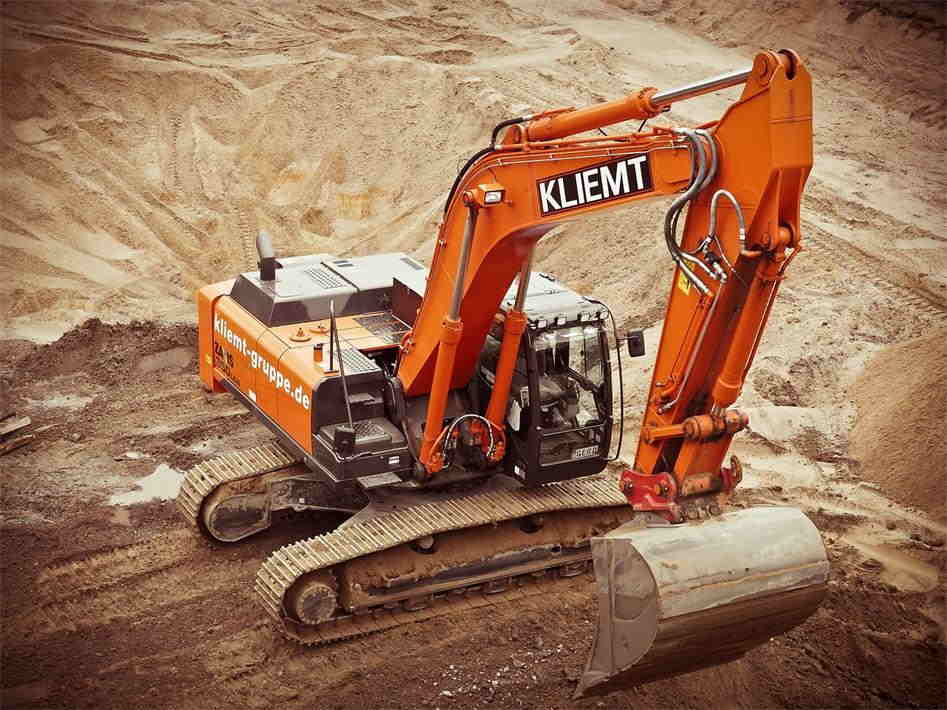Material sorting plays a vital role in various industries, including construction, mining, recycling, and agriculture. Efficient sorting processes ensure that materials are separated according to their type, size, and quality, which improves both productivity and safety.
One of the most effective tools for enhancing material sorting is the bucket screener. These machines offer versatility, speed, and efficiency in handling a wide range of materials, making them an essential part of modern sorting operations.
What are Bucket Screeners?
Bucket screeners are attachments designed for use with excavators, loaders, or other heavy machinery. They consist of a bucket with a screening mesh or drum that separates materials based on size.
The attachment uses a combination of vibration and rotating drums to sieve through materials, allowing the fine particles to fall through the mesh while the larger particles remain in the bucket. This method of screening is incredibly efficient, especially for materials like soil, sand, gravel, crushed stone, and even waste materials.
These machines are available in different configurations, including rotating and oscillating bucket screeners, each suited for various applications. The versatility of bucket screeners allows them to be used in a wide variety of environments, from construction sites to recycling plants.
Enhancing Efficiency in Material Handling
One of the primary benefits of bucket screeners is their ability to enhance material handling efficiency. Traditional methods of material sorting often involve manual labor or less efficient mechanical processes.
With bucket screeners, the material can be sorted as it is moved, minimizing downtime and labor costs. These machines can process large volumes of material quickly, which significantly improves productivity.
Additionally, bucket screeners are designed to be compact and mobile, which makes them ideal for operations where space is limited or where mobility is crucial.
Since they are attached to heavy machinery like excavators or loaders, they can easily be transported to different parts of the site, reducing the need for multiple machines or transportation methods.
Applications of Bucket Screeners
Bucket screeners are used across a range of industries, each with specific requirements for material sorting.
In the construction industry, they are often used to sift through soil, sand, and gravel, ensuring that these materials are free from debris like rocks, roots, or other contaminants. This is particularly important when preparing foundations or making sure that the raw materials meet certain specifications.
In the mining industry, bucket screeners help in sorting extracted materials like coal, ores, and aggregates. The screening process ensures that only the desired material is collected, while waste and substandard materials are discarded or further processed. This helps reduce waste and improve the efficiency of the entire mining operation.
Recycling is another area where bucket screeners have a significant impact. Sorting recyclable materials such as metal, glass, plastic, and paper is essential for reducing waste and improving the sustainability of recycling programs.
By efficiently separating these materials, bucket screeners help optimize the recycling process, ensuring that more materials are recovered and reused.
Agricultural industries also benefit from bucket screeners, particularly in the sorting of agricultural waste or processing of soil and compost. The ability to separate organic materials like leaves, twigs, and roots from usable soil or compost can enhance the quality of the final product.
Advantages of Using Bucket Screeners
1. Improved Material Quality:
By effectively sorting materials based on size and type, bucket screeners help improve the quality of the final product. For example, in construction, removing oversized rocks or debris from soil ensures that the material used in projects meets quality standards.
2. Cost Savings:
With their ability to process large volumes of material quickly, bucket screeners can save both time and labor costs. The reduced need for manual labor and multiple sorting processes lowers operational expenses, making them a cost-effective solution for many industries.
3. Versatility:
Bucket screeners are highly versatile and can be used to sort a wide range of materials, from soil and gravel to waste and recycling materials. Machinery Partner bucket screeners are particularly known for their reliability and high performance, making them a preferred choice across various industries for material sorting.
Their adaptability to different applications ensures they remain an essential tool in optimizing material handling.
4. Mobility and Ease of Use:
Since bucket screeners are attached to heavy machinery, they can be moved around job sites easily. This mobility allows operators to use the equipment in different areas without the need for additional machines or complicated setups. Their ease of use also means that operators can quickly begin sorting materials without requiring extensive training.
5. Reduced Environmental Impact:
By improving the efficiency of material sorting and recycling, bucket screeners help reduce waste and lower the environmental impact of operations. For example, in recycling, more materials can be recovered and reused, reducing the need for new raw materials and minimizing landfill waste.
Conclusion
In conclusion, bucket screeners play a crucial role in enhancing material sorting across a wide range of industries. Their ability to efficiently separate materials based on size and type improves productivity, reduces costs, and ensures better quality control.
Whether used in construction, mining, recycling, or agriculture, bucket screeners provide a versatile and effective solution for optimizing material handling. As industries continue to focus on efficiency and sustainability, bucket screeners will remain an invaluable tool in achieving these goals.






